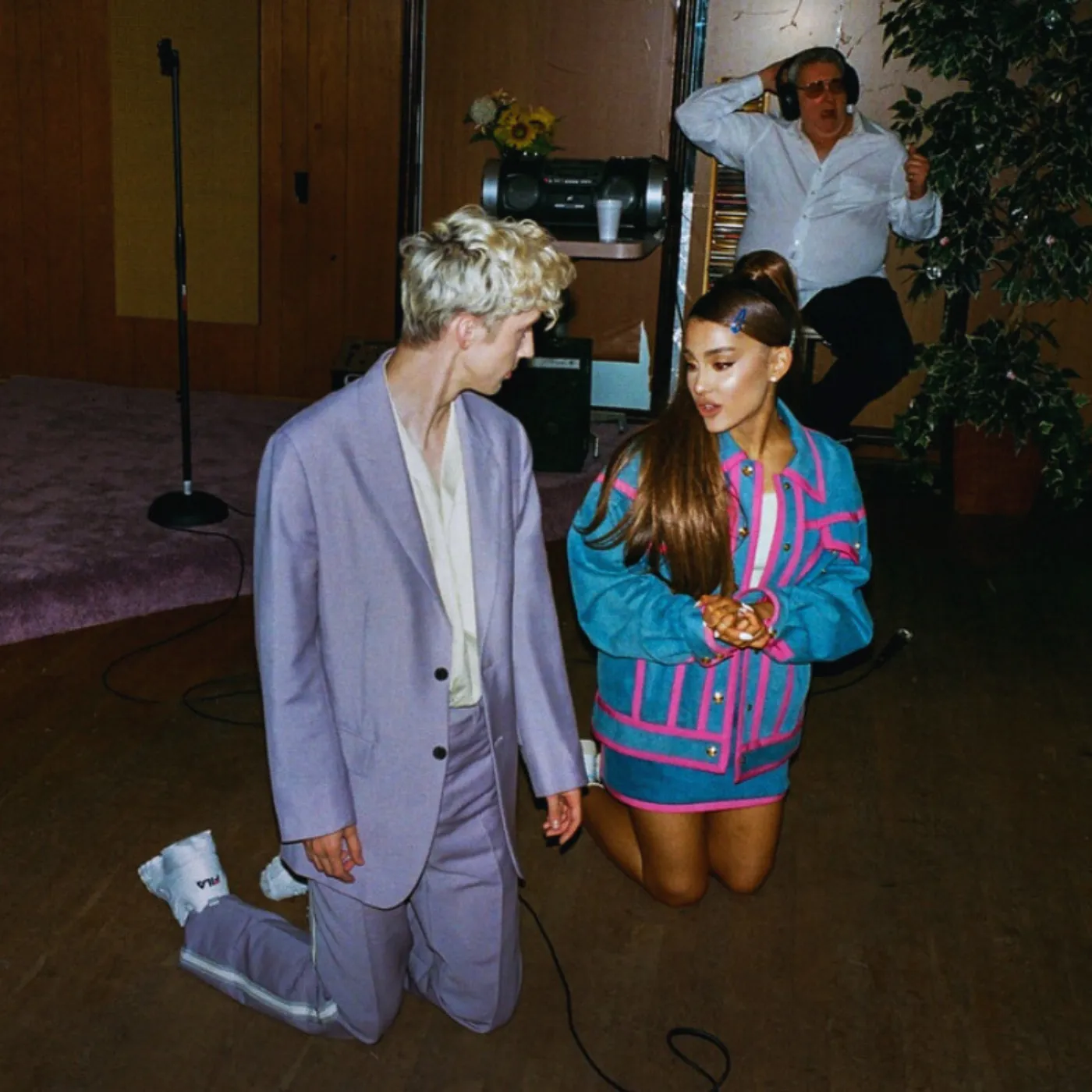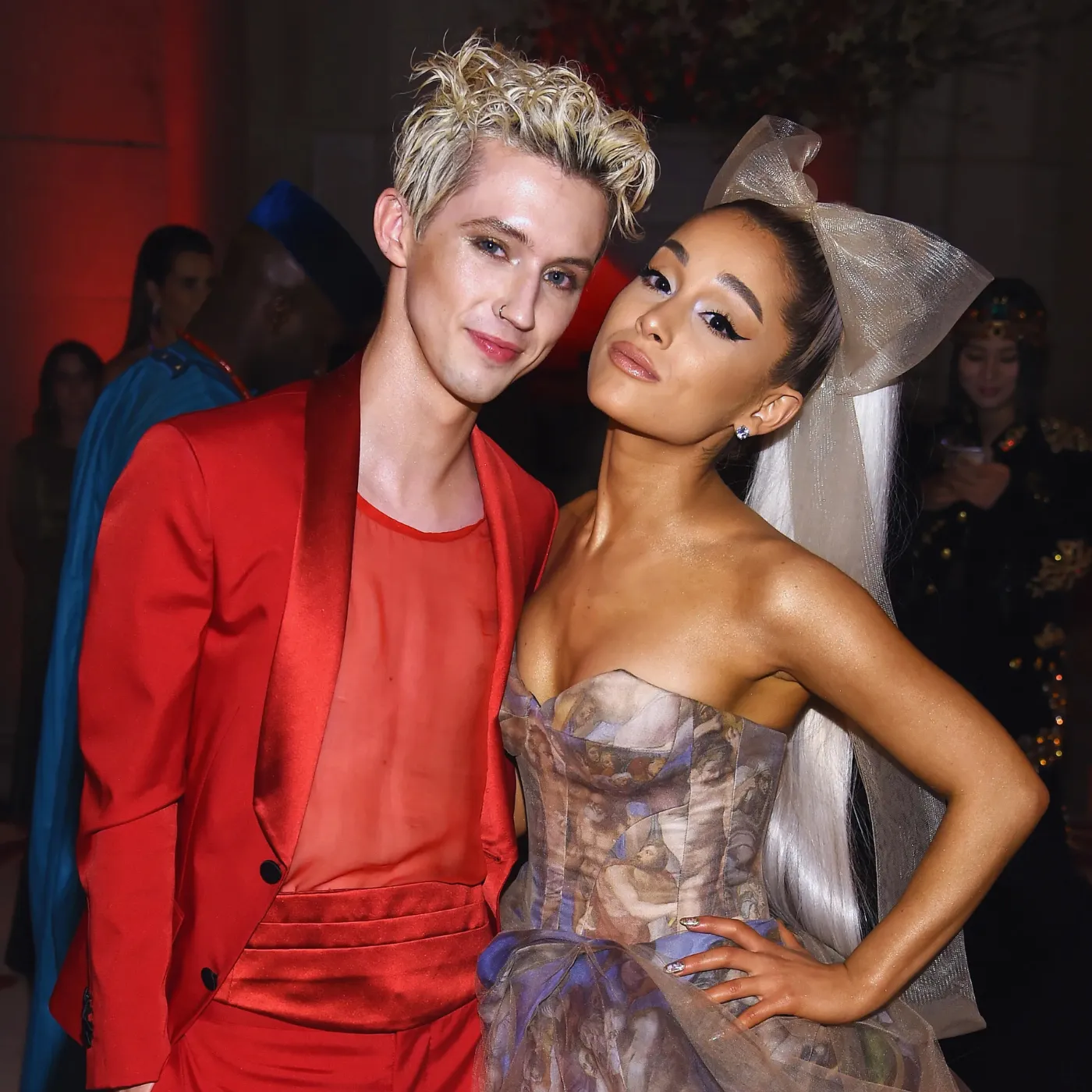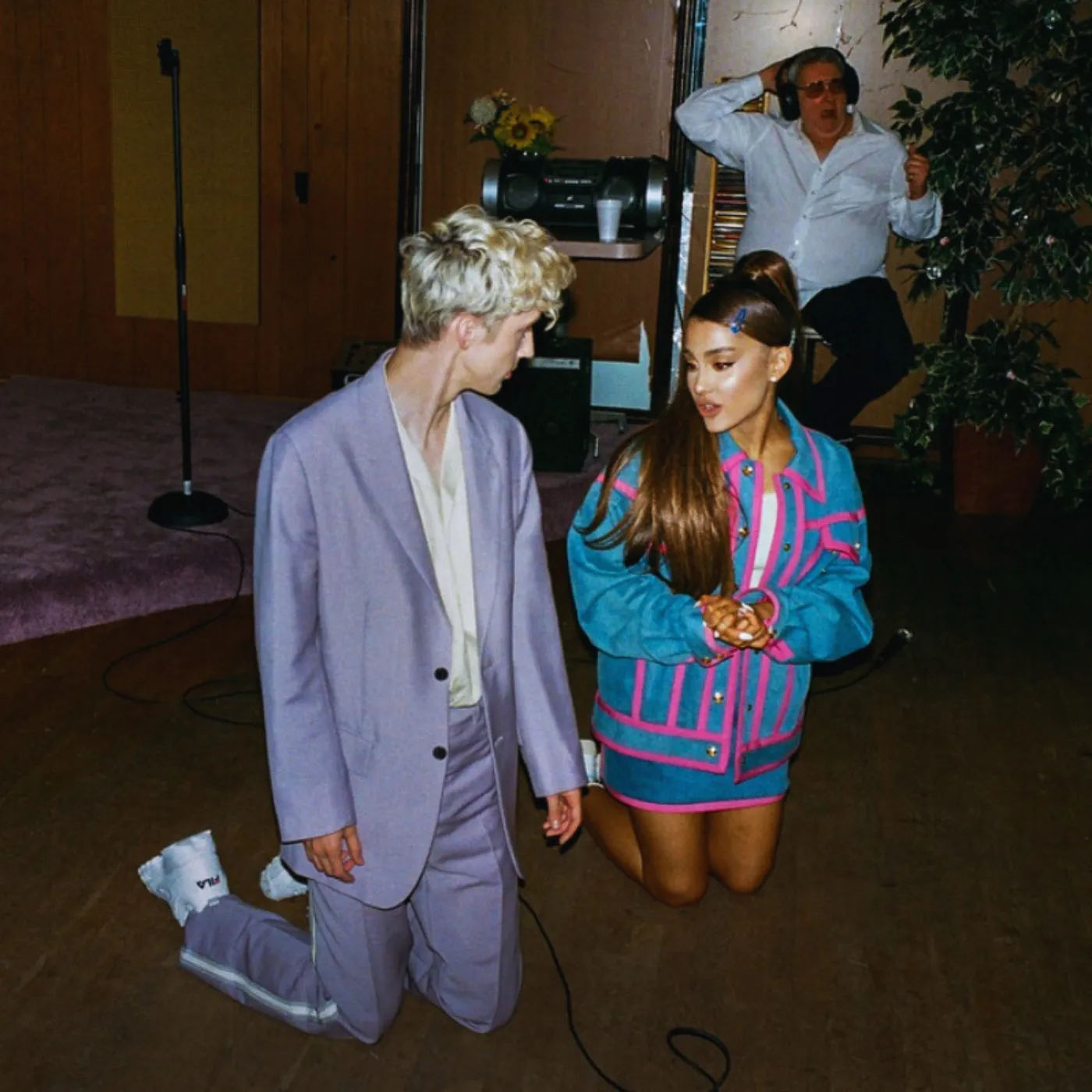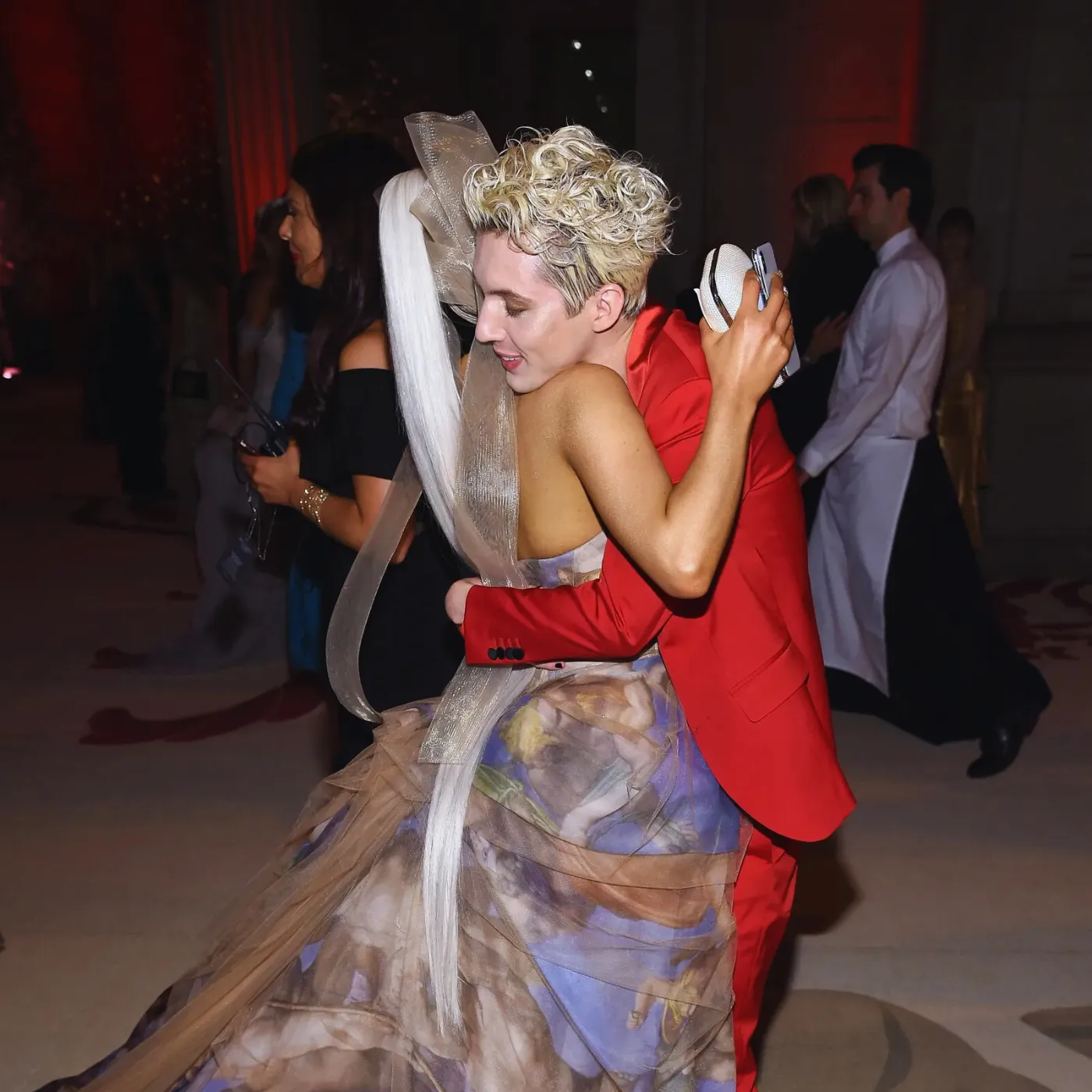

Troye Sivan Just Ignited a Pop War With One Post About Ariana Grande
Two years after shaking pop culture with his euphoric anthem “Rush,” Troye Sivan is back in the spotlight—but this time, not for his music. In a post that sent fan communities into overdrive, the Australian pop star referred to Ariana Grande as “a maior de todos os tempos”—“the greatest of all time”—while reacting to her newly announced tour. The comment, short as it may be, has sparked intense conversation far beyond fan circles. Is it just flattery? Or is there a deeper industry message hiding behind that bold declaration?

Let’s break down how one sentence from Troye Sivan managed to ignite a multi-layered debate across the pop music world.
Ariana’s Tour Is Already a Cultural Earthquake
Ariana Grande’s long-anticipated return to touring has been anything but subtle. After years of near radio silence regarding live shows, her announcement was met with frenzy. Within hours, ticket queues stretched digital platforms to their limits, and resale prices ballooned well into four-figure territory. Every major city on the list became a trending topic.
This isn’t just another pop tour. It’s a power play. And Troye Sivan, who has always had a keen sense for what’s culturally seismic, seemed to sense it too.
Why Troye’s Words Landed Like a Bomb
It’s not the first time an artist has praised Ariana Grande, but the timing, word choice, and platform made this one different. “A maior de todos os tempos”—in ”Portuguese—wasn’t casually dropped. It appeared under a post showcasing a teaser from Ariana’s tour visuals, which fans are already comparing to the most iconic moments in pop history.
Troye Sivan, known for his poetic restraint, doesn’t usually throw around words like “GOAT.” So when he did, in a non-English phrase no less, it felt deliberate. It gave his comment a sense of global endorsement—something larger than just American pop fandom. And fans noticed.
Fans React: Obsession, Outrage, and Theories
Within minutes, the comment section exploded. Stan accounts began sharing screengrabs. Fan cams resurfaced. Old interviews were clipped and reposted. Why? Because this wasn’t just about support—it was about validation. If someone as artistically respected as Troye Sivan calls Ariana the GOAT, does that settle the long-running debate between her and other industry titans?
Not everyone agreed.
Some accused Troye of clout-chasing, suggesting his comment was a strategic move to align himself with Ariana’s new era. Others said it was a way of subtly shading her pop peers—especially considering recent chatter comparing her to Taylor Swift and Beyoncé.
But perhaps the most intriguing reaction came from fans who believe Troye’s comment wasn’t even about Ariana—but rather about the state of pop itself.

The Hidden Industry Message?
If you’ve followed Troye Sivan’s trajectory, you know he doesn’t waste words. His recent interviews show a growing frustration with how mainstream music is packaged, sold, and algorithmically controlled. So when he praised Ariana—an artist who took a creative hiatus, starred in a massive film, and is now returning on her terms—was he actually highlighting a new standard of power in pop?
Some insiders think yes.
According to multiple entertainment reporters, Troye has long admired artists who operate with what they call “label immunity“—the “ability to move freely, without begging for radio play or playing streaming platform politics. Ariana is currently the poster child for that model. She disappears. She reinvents. She resurfaces on her own schedule—and still dominates.
In this lens, Troye’s comment becomes more than flattery. It’s a recognition of dominance of an artist who has found a way to escape the hamster wheel while still breaking records.
Why This Moment Matters for Troye Too
This isn’t a one-sided story. The comment also reflects Troye Sivan’s own evolution. After years of being labeled “underrated,” Troye has quietly built a discography that’s both critically acclaimed and commercially impactful. His visuals have become staples in pop culture. His sound has influenced countless newcomers. And yet, he rarely makes declarations about industry status.
So when he calls someone “the greatest,” fans inevitably start wondering: What does Troye want to say about himself?
Some believe this is the start of a new alignment—that Troye and Ariana are gearing up for a larger collaboration, one that could redefine what artistic partnerships look like in the streaming era. Others think he’s simply expressing his admiration, strategically placing himself in the orbit of pop’s current queen.
Industry Fallout: Who’s Offended, Who’s Threatened?
Statements like Troye’s don’t land in a vacuum. Artists notice. Managers notice. Labels notice. When one artist publicly elevates another, especially one from a competing label or demographic, it disrupts the hierarchy.
Rumors are already swirling about how this comment was perceived by artists who also claim the GOAT title. Quiet unfollows. Subtle lyric changes. Shifts in PR strategy. If you’ve been in the industry long enough, you know these things happen behind the scenes before they ever hit the headlines.
There’s also growing speculation that Ariana’s team may use this viral moment to fuel momentum for the tour. In a world where every quote can become a marketing asset, Troye’s praise might just become part of Ariana’s official tour narrative.
The Bigger Question: Can One Comment Rewrite Pop’s Power Map?
It sounds extreme—but in today’s attention economy, one sentence can shift perception. Especially when it comes from an artist like Troye Sivan, whose fanbase is rabid, digital-native, and deeply engaged.
Already, SEO trackers have noted a spike in searches for “Troye Sivan Ariana Grande collab” and “Troye Sivan greatest of all time quote.” That’s not coincidence. That’s algorithmic proof that words matter.
And if this proves anything, it’s that Troye Sivan understands that in 2025, sometimes a single line in a comment section can wield more influence than an entire press tour.

Final Take
Troye Sivan’s “greatest of all time” comment wasn’t just fandom. It was a strategic, cultural lightning strike—the kind that reveals more about the architecture of fame than any interview ever could. Whether or not you agree with him, one thing is clear: the power players of pop are speaking louder than ever—and they’re doing it with fewer words and bigger ripples.
And just like that, what started as a simple compliment may have become one of the most talked-about sentences in modern music commentary.


















